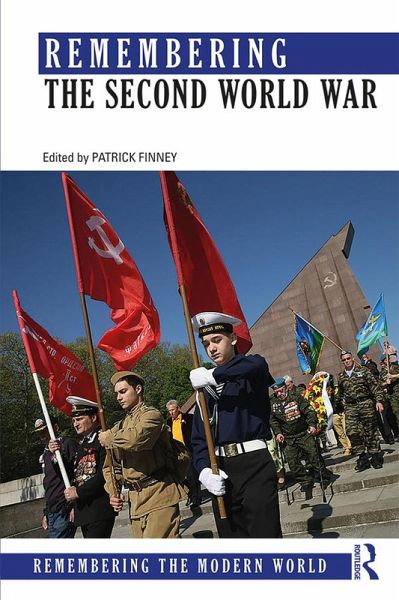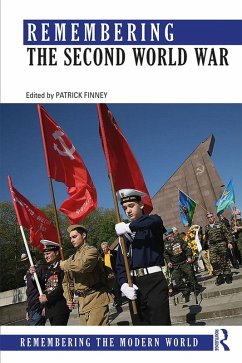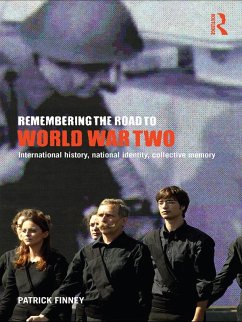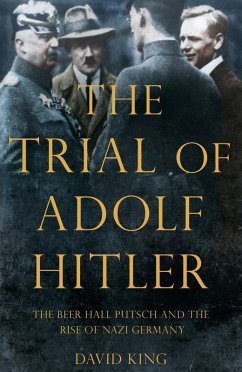
Remembering the Second World War (eBook, ePUB)
Versandkostenfrei!
Sofort per Download lieferbar
39,95 €
inkl. MwSt.
Weitere Ausgaben:

PAYBACK Punkte
20 °P sammeln!
Remembering the Second World War brings together an international and interdisciplinary cast of leading scholars to explore the remembrance of this conflict on a global scale. Conceptually, it is premised on the need to challenge nation-centric approaches in memory studies, drawing strength from recent transcultural, affective and multidirectional turns.Divided into four thematic parts, this book largely focuses on the post-Cold War period, which has seen a notable upsurge in commemorative activity relating to the Second World War and significant qualitative changes in its character. The first...
Remembering the Second World War brings together an international and interdisciplinary cast of leading scholars to explore the remembrance of this conflict on a global scale. Conceptually, it is premised on the need to challenge nation-centric approaches in memory studies, drawing strength from recent transcultural, affective and multidirectional turns.
Divided into four thematic parts, this book largely focuses on the post-Cold War period, which has seen a notable upsurge in commemorative activity relating to the Second World War and significant qualitative changes in its character. The first part explores the enduring utility and the limitations of the national frame in France, Germany and China. The second explores transnational transactions in remembrance, looking at memories of the British Empire at war, contested memories in East-Central Europe and the transnational campaign on behalf of Japan's former 'comfort women'. A third section considers local and sectional memories of the war and the fourth analyses innovative practices of memory, including re-enactment, video gaming and Holocaust tourism.
Offering insightful contributions on intriguing topics and illuminating the current state of the art in this growing field, this book will be essential reading for all students and scholars of the history and memory of the Second World War.
Divided into four thematic parts, this book largely focuses on the post-Cold War period, which has seen a notable upsurge in commemorative activity relating to the Second World War and significant qualitative changes in its character. The first part explores the enduring utility and the limitations of the national frame in France, Germany and China. The second explores transnational transactions in remembrance, looking at memories of the British Empire at war, contested memories in East-Central Europe and the transnational campaign on behalf of Japan's former 'comfort women'. A third section considers local and sectional memories of the war and the fourth analyses innovative practices of memory, including re-enactment, video gaming and Holocaust tourism.
Offering insightful contributions on intriguing topics and illuminating the current state of the art in this growing field, this book will be essential reading for all students and scholars of the history and memory of the Second World War.
Dieser Download kann aus rechtlichen Gründen nur mit Rechnungsadresse in A, B, BG, CY, CZ, D, DK, EW, E, FIN, F, GR, HR, H, IRL, I, LT, L, LR, M, NL, PL, P, R, S, SLO, SK ausgeliefert werden.













